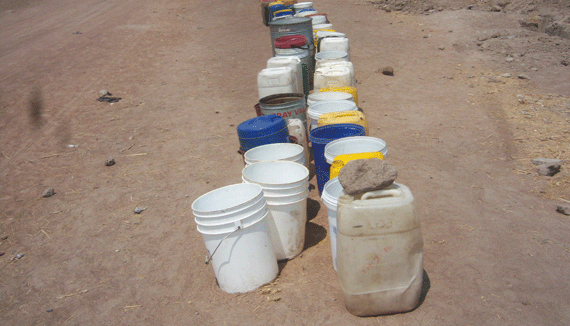
THE Zimbabwe National Liberation War Veterans Association (ZNLWVA) boss Jabulani Sibanda has said the resuscitation of Bulawayo industries lies in the revival of the National Railways of Zimbabwe (NRZ) and a permanent solution to the city’s water supply.
MTHANDAZO NYONI OWN CORRESPONDENT
In an interview with Southern Eye yesterday, Sibanda said for NRZ to be revived, the government should engage local engineers who understand the importance of the rail company instead of Chinese engineers currently being hired to spearhead huge infrastructural projects.
Sibanda said there was need to protect NRZ from foreign competition as the only major company headquartered in Bulawayo.
He said if the government prioritised rail for transporting heavy goods, NRZ could be turned around in just six months.
He also castigated some business analysts and politicians who believed that the only way to rehabilitate NRZ was by prising it away from the State and selling it to private investors.
“You cannot privatise NRZ,” said Sibanda. “If you do that, it will be like privatising a police force. For NRZ to be viable, we do not need engineers from China, but we need brains from this country,” Sibanda said.
He said NRZ and Zimbabwean industry in general had been destroyed by the individual choice instead of system choice in board selection.
- Chamisa under fire over US$120K donation
- Mavhunga puts DeMbare into Chibuku quarterfinals
- Pension funds bet on Cabora Bassa oilfields
- Councils defy govt fire tender directive
Keep Reading
He said this led to poor control systems which inherently solicited crime.
“This issue needs sacrifice, but because of corruption, inability and indifference we will hardly go anywhere.
“If we fail to resuscitate NRZ, we will never revive Bulawayo’s industries,” Sibanda said.
He also said industry could not function effectively without adequate water supply, hence the need for a permanent water supply.
“Companies are evacuating Bulawayo because of lack of water. This can only be resolved by the government if it takes the Matabeleland Zambezi Water Project (MZWP) away from the hands of non-governmental organisations (NGOs).”
“In the northern part of our country, there is better rainfall and they harvest cash crops three times a year. However, in the southern parts where there is no water and where the MZWP was left in the hands of NGOs, we only harvest once a year if at all there is rain. We harvest 15 times in 15 years yet others are harvesting 45 times in 15 years.
“This is the reason why Harare has a lot of industrial activities taking place,” he said.
Sibanda suggested that all Bulawayo companies should come together and form a committee that will represent them and discuss issues affecting their operations.
He said such a committee should then approach Bulawayo Provincial Affairs minister Eunice Sandi-Moyo for it to be officially recognised.
This, he said, would make it easier for affected companies to interact with the government directly.
Bulawayo was once the industrial hub of Zimbabwe, but the city’s once thriving and booming industrial zone, Belmont, has become a ghost town with most companies either having shut down or relocated to Harare as a result of perennial water shortages.










